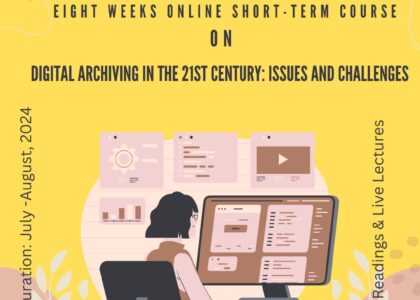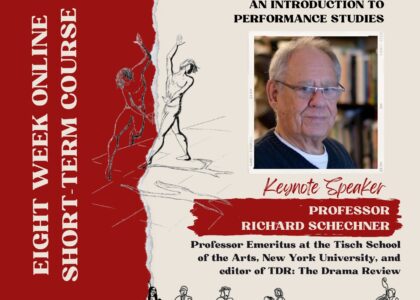About the Course: Ethnomusicology is a captivating interdisciplinary exploration of the profound connections between music and the intricate tapestry of culture and society. This course offers a comprehensive journey through a range of diverse musical traditions of the world, the symbolism of musical instruments and their relevance to the practitioners, the intertwining of music with rituals and ceremonies, and the transmission of musical wisdom through generations. Through this course, the participants will gain a comprehensive understanding of the intricacies of ethnomusicology as a discipline. This course serves as an introductory gateway into the world of ethnomusicology. Throughout this journey, participants will refine their listening skills and embark on a captivating exploration of myriad musical traditions from around the globe, with a particular focus on South Asia. The course will help in exploring the contexts from which certain musical traditions emerge and evolve and their ways of interacting with the world around us. The course focuses on the historical aspects of ethnomusicology as a discipline, aspects of applied ethnomusicology, aspects of archiving and preservation of music and a profound understanding of musical cultures from the Indian subcontinent. The participants will delve deep into the social and cultural contexts where music is not just created but comes alive through performance.
Course Coordinators:
Dr Mekhala Chattopadhyay is currently working as an Assistant Professor of English in Govt. Kakatiya P.G College Jagdalpur, Chhattisgarh. She has submitted her thesis on Folk Songs of Bengal. Her interests lie mainly in the fields of memory studies, cultural studies, digital humanities and indigenous cultures. She has published as well as presented her papers in national and international conferences. She is currently working on the folklore of the tribal population of Bastar. She is a co-editor of the online little magazine of creative expressions named Shiuli and has published numerous poems in Cafe Dissensus, The Volcano, The Sunflower Collective and others.
Mir Masudul Hoque, a PhD Research Scholar in the Department of English at Aligarh Muslim University, is an early-career ethnomusicologist and folklorist. His current project is aligned with Ecomusicology, explicitly examining the environmental consciousness of the Bauls of Bengal. Mir consistently contributes to relevant conferences and journals through presentations and publications. Notably, he has participated in workshops, a summer school, and a Ministry of Education-sponsored project on the Indian knowledge system. Beyond academics, he has a strong passion for music and is currently learning Hindustani classical music and guitar. Additionally, he enjoys travelling and creating documentaries.
Course Objectives:
To help participants understand the discipline of ethnomusicology
To understand the methods involved in the study of ethnomusicology.
To analyse the musical cultures and interpret the inner matrix of socio-cultural, political and economic modes of being.
To understand the relationship between music, meaning-making and the society.
To understand the performative aspects of music and music cultures of the Indian subcontinent.
To help the participants understand the various aspects of archiving and fieldwork.
To connect the discipline to emerging concerns of sustainability and the environment.
Highlights:
- Reading Sessions and Intensive Discussions
- Open Educational Resources and Reading Materials
- Invited Lectures by Eminent Scholars of the Discipline
- Artists’ Performances
- Documentary Screenings
- Music Listening and Responses
- Introduction to Fieldwork and its Processes
- Collaborative Projects
Lorem ipsum dolor sit amet, consectetur adipiscing elit. Ut elit tellus, luctus nec ullamcorper mattis, pulvinar dapibus leo.


